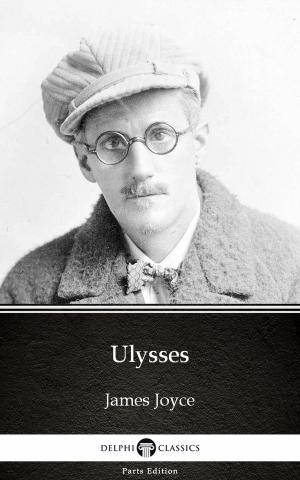| Author: | Laurence Larson | ISBN: | 6610000020324 |
| Publisher: | PublishDrive | Publication: | July 12, 2017 |
| Imprint: | Merkaba Press | Language: | English |
| Author: | Laurence Larson |
| ISBN: | 6610000020324 |
| Publisher: | PublishDrive |
| Publication: | July 12, 2017 |
| Imprint: | Merkaba Press |
| Language: | English |
Among the many gigantic though somewhat shadowy personalities of the viking age, two stand forth with undisputed pre-eminence: Rolf the founder of Normandy and Canute the Emperor of the North. Both were sea-kings; each represents the culmination and the close of a great migratory movement,—Rolf of the earlier viking period, Canute of its later and more restricted phase. The early history of each is uncertain and obscure; both come suddenly forth upon the stage of action, eager and trained for conquest. Rolf is said to have been the outlawed son of a Norse earl; Canute was the younger son of a Danish king: neither had the promise of sovereignty or of landed inheritance. Still, in the end, both became rulers of important states—the pirate became a constructive statesman. The work of Rolf as founder of Normandy was perhaps the more enduring; but far more brilliant was the career of Canute.
Few great conquerors have had a less promising future. In the early years of the eleventh century, he seems to have been serving a military apprenticeship in a viking fraternity on the Pomeranian coast, preparatory, no doubt, to the profession of a sea-king, the usual career of Northern princes who were not seniors in birth. His only tangible inheritance seems to have been the prestige of royal blood which meant so much when the chief called for recruits.
But it was not the will of the Norns that Canute should live and die a common pirate, like his grand-uncle Canute, for instance, who fought and fell in Ireland: his heritage was to be greater than what had fallen to any of his dynasty, more than the throne of his ancestors, which was also to be his. In a vague way he inherited the widening ambitions of the Northern peoples who were once more engaged in a fierce attack on the West. To him fell also the ancient claim of the Danish kingdom to the hegemony of the North. But more specifically Canute inherited the extensive plans, the restless dreams, the imperialistic policy, and the ancient feuds of the Knytling dynasty. Canute's career is the history of Danish imperialism carried to a swift realisation. What had proved a task too great for his forbears Canute in a great measure achieved. In England and in Norway, in Sleswick and in Wendland, he carried the plans of his dynasty to a successful issue. It will, therefore, be necessary to sketch with some care the background of Canute's career and to trace to their origins the threads of policy that Canute took up and wove into the web of empire. Some of these can be followed back at least three generations to the reign of Gorm in the beginning of the tenth century.
Among the many gigantic though somewhat shadowy personalities of the viking age, two stand forth with undisputed pre-eminence: Rolf the founder of Normandy and Canute the Emperor of the North. Both were sea-kings; each represents the culmination and the close of a great migratory movement,—Rolf of the earlier viking period, Canute of its later and more restricted phase. The early history of each is uncertain and obscure; both come suddenly forth upon the stage of action, eager and trained for conquest. Rolf is said to have been the outlawed son of a Norse earl; Canute was the younger son of a Danish king: neither had the promise of sovereignty or of landed inheritance. Still, in the end, both became rulers of important states—the pirate became a constructive statesman. The work of Rolf as founder of Normandy was perhaps the more enduring; but far more brilliant was the career of Canute.
Few great conquerors have had a less promising future. In the early years of the eleventh century, he seems to have been serving a military apprenticeship in a viking fraternity on the Pomeranian coast, preparatory, no doubt, to the profession of a sea-king, the usual career of Northern princes who were not seniors in birth. His only tangible inheritance seems to have been the prestige of royal blood which meant so much when the chief called for recruits.
But it was not the will of the Norns that Canute should live and die a common pirate, like his grand-uncle Canute, for instance, who fought and fell in Ireland: his heritage was to be greater than what had fallen to any of his dynasty, more than the throne of his ancestors, which was also to be his. In a vague way he inherited the widening ambitions of the Northern peoples who were once more engaged in a fierce attack on the West. To him fell also the ancient claim of the Danish kingdom to the hegemony of the North. But more specifically Canute inherited the extensive plans, the restless dreams, the imperialistic policy, and the ancient feuds of the Knytling dynasty. Canute's career is the history of Danish imperialism carried to a swift realisation. What had proved a task too great for his forbears Canute in a great measure achieved. In England and in Norway, in Sleswick and in Wendland, he carried the plans of his dynasty to a successful issue. It will, therefore, be necessary to sketch with some care the background of Canute's career and to trace to their origins the threads of policy that Canute took up and wove into the web of empire. Some of these can be followed back at least three generations to the reign of Gorm in the beginning of the tenth century.















